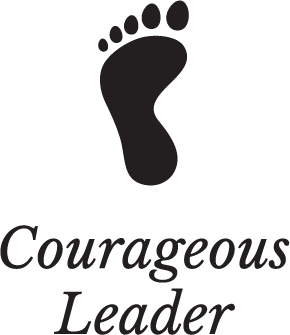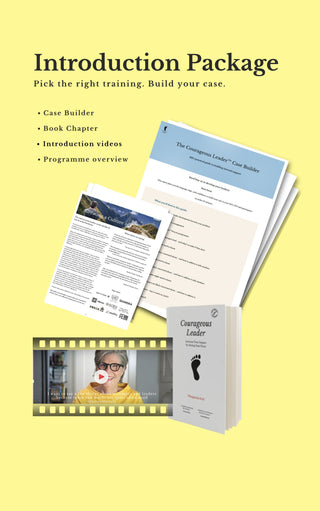Team building is essential in any professional setting, whether you are leading a small group or are part of a large organization. Effective team building enhances collaboration and efficiency, boosts morale, and supports a positive work environment.
This blog post explores 10 critical skills needed for team building and offers practical advice on developing them through targeted training programs. Mastering these competencies will enhance your team's performance and cohesion.
1. Communication
Why It Matters: Clear and effective communication forms the backbone of successful team building. It involves both conveying messages clearly and listening actively.
How to Develop:
- Practice Active Listening: Focus on understanding the speaker's message, ask clarifying questions, and repeat what you hear to ensure comprehension.
- Engage in Team Activities: Regular team meetings and activities can improve interpersonal communication.
- Training Programmes: Participate in workshops that emphasize communication strategies and role-playing scenarios.
2. Conflict Resolution
Why It Matters: Conflicts are inevitable. The ability to resolve disagreements amicably and efficiently prevents disruptions in teamwork.
How to Develop:
- Understand Different Conflict Styles: Knowing whether you naturally compete, collaborate, compromise, avoid, or accommodate can help manage conflicts.
- Role-Playing Exercises: Training sessions that simulate conflict scenarios are beneficial for practicing conflict resolution skills.
- Seek Feedback: Encourage peer and mentor feedback on your conflict resolution style.
3. Leadership
Why It Matters: Strong leadership is crucial for guiding a team towards achieving its goals and maintaining harmony.
How to Develop:
- Lead by Example: Demonstrate the qualities you wish to see in your team members, including integrity, diligence, and fairness.
- Mentorship Programmes: Either seek a mentor or act as one to develop leadership skills.
- Leadership Workshops: These can help hone specific skills such as decision-making and strategic thinking.
4. Empathy
Why It Matters: Empathy involves understanding and sharing the feelings of others, which enhances team cooperation and support.
How to Develop:
- Personal Interaction: Spend time with team members one-on-one to better understand their challenges and perspectives.
- Empathy Training: Some organizations offer specific training to help people recognize and react to the emotional needs of others.
5. Problem Solving
Why It Matters: Teams face challenges regularly. Effective problem-solving ensures these are addressed promptly and creatively.
How to Develop:
- Brainstorming Sessions: Regular sessions can help teams practice and improve their problem-solving capabilities.
- Critical Thinking Exercises: Engage in activities that challenge your norms and encourage innovative thinking.
- Skills Workshops: Look for courses focusing on critical thinking and problem-solving techniques.
6. Adaptability
Why It Matters: Flexibility in work habits and thoughts allows a team to respond effectively to changes.
How to Develop:
- Change Management Training: Helps teams learn to navigate and adapt to organizational changes smoothly.
- Encourage Flexibility: Promote a team culture where new ideas and strategies are welcomed and tested.
7. Trust Building
Why It Matters: Trust is fundamental in team interactions, impacting everything from project success to interpersonal relationships.
How to Develop:
- Transparency Practices: Be open about processes, decisions, and updates. Keeping team members in the loop fosters trust.
- Team Retreats and Workshops: These can facilitate deeper personal connections and mutual respect among team members.
8. Decision Making
Why It Matters: Effective decision-making saves time and resources, allowing teams to achieve goals efficiently.
How to Develop:
- Decision-Making Frameworks: Teach the team specific methodologies for making informed decisions.
- Pros and Cons Analysis: Regularly practice this technique to improve critical and analytical thinking skills.
9. Motivation
Why It Matters: A motivated team is more productive and driven to succeed. Keeping morale high is a crucial task for any leader.
How to Develop:
- Incentive Programs: Implement reward systems that recognize team and individual achievements.
- Career Development Opportunities: These ensure team members feel valued and invested in their roles.
10. Cultural Awareness
Why It Matters: Understanding and respecting cultural differences is pivotal in fostering an inclusive workplace in today's global environment.
How to Develop:
- Cultural Competence Training: Provides team members with the insights needed to interact respectfully and effectively with colleagues from diverse backgrounds.
- International Team Projects: Working on projects with international teams can provide practical experience and insights into different cultures.
Conclusion
Developing these 10 team-building skills can significantly enhance your team's productivity and workplace environment. By engaging in comprehensive training programmes, practicing the skills outlined, and continuously seeking improvement, you can build a stronger, more cohesive team.
We encourage you to comment below with your experiences, share this post with colleagues, or explore our related services to help you implement effective team-building strategies in your organization. Let’s build stronger teams together!
Read More:
Leadership Training Service


